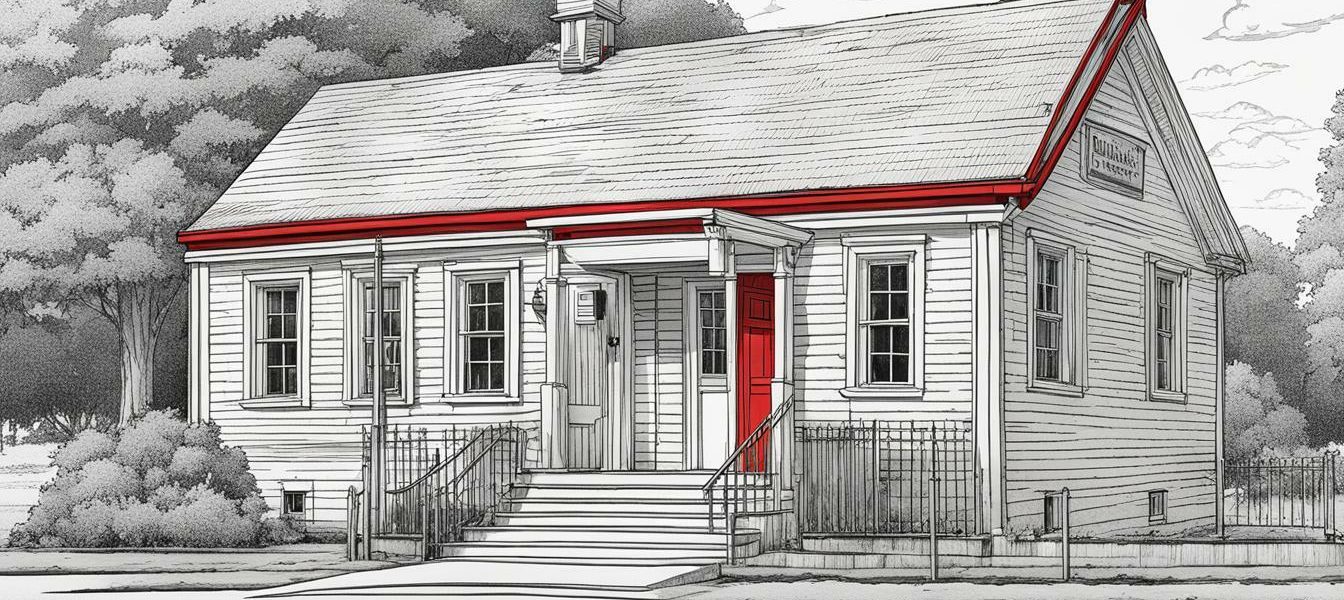
Is Elementary School Capitalized?
When writing about elementary school, it can be challenging to know whether to capitalize the term or not. Capitalization plays a crucial role in writing, as it helps to convey the desired meaning of a word or phrase. In this article, we’ll explore the rules for capitalizing elementary school and provide examples to help you understand how to use them correctly.
Key Takeaways
- Elementary school should be capitalized when it is part of a proper noun or official title.
- Common nouns and adjectives that describe elementary school should not be capitalized.
- Consistency in capitalization is crucial for clarity and professionalism in writing related to elementary school.
Understanding Capitalization Rules
Capitalization is an essential aspect of grammar that can significantly impact the clarity and professionalism of your writing. Proper capitalization adheres to specific rules and conventions, which are important to follow to ensure effective communication. In this section, we will discuss the general capitalization rules in grammar and the importance of following these rules when writing about elementary school.
Capitalization Rules
Capitalization rules dictate when to use uppercase and lowercase letters in different contexts. The general rule of thumb is to capitalize proper nouns, such as names, places, and specific things, and the first letter of a sentence. However, there are many exceptions to these rules that you should also be aware of.
For instance, you should always capitalize the first letter of a person’s name, whether it’s their first, middle, or last name. The same applies to the names of schools, including elementary schools. Hence, elementary school should be capitalized in writing as it is a proper noun.
Importance of Capitalization Rules
Following capitalization rules is crucial to ensure the clarity and professionalism of your writing. Using consistent capitalization helps your readers focus on the content and understand the information presented without distractions. In the context of writing about elementary school, proper capitalization also adds credibility and legitimacy to your work.
Poor capitalization can lead to confusion, misinterpretation, and even a loss of trust from your readers. In addition, not following grammar rules could reflect poorly on your writing and cause you to lose credibility as a writer. Therefore, it is essential to prioritize proper capitalization in your written work.
Capitalization of Proper Nouns
In addition to general capitalization rules, it is important to follow specific guidelines when referring to elementary school as a proper noun in writing. Proper nouns refer to specific names of people, places, or things, and they are always capitalized.
When referring to a specific elementary school, whether it is a public or private school, the proper noun should be capitalized. For example:
| Correct Usage | Incorrect Usage |
|---|---|
| I attended Jackson Elementary School. | I attended elementary school. |
| My daughter is enrolled in Franklin Elementary School. | My daughter is enrolled in elementary school. |
When referring to elementary school in general, as a common noun, it should only be capitalized when it is part of a proper noun or used as a title. For example:
| Correct Usage | Incorrect Usage |
|---|---|
| Elementary school students learn basic math and reading skills. | elementary school students learn basic math and reading skills. |
| John Smith Elementary School is located in downtown. | John Smith elementary school is located in downtown. |
It is important to remember that proper capitalization enhances readability and clarity in writing. By following the specific capitalization rules for elementary school, writers can effectively communicate their ideas and thoughts to their readers.
Capitalization of Adjectives and Common Nouns
Another important aspect of elementary school capitalization is knowing when to capitalize adjectives and common nouns related to it. In general, adjectives and common nouns should not be capitalized unless they appear as part of a proper noun or at the beginning of a sentence.
For example, in the sentence “I am excited to start elementary school this year,” “elementary school” is not capitalized because it is a common noun. However, in the sentence “I will attend Lincoln Elementary School,” “Elementary School” is capitalized because it is a proper noun and part of the school’s name.
It’s essential to pay attention to capitalization in these cases to avoid confusing readers and to adhere to proper grammar rules.
When to Capitalize Adjectives
Adjectives used to describe specific aspects of elementary school, such as “fun,” “challenging,” or “creative,” should not be capitalized unless they are part of a proper noun. For instance, “fun classroom activities” does not need to be capitalized, but “Fun Club” would require capitalization as it is a specific club name.
On the other hand, it’s important to note that some proper nouns, like school subjects or events, contain adjectives that should always be capitalized. For example, “Science Fair,” “Math Class,” or “English Language Arts.”
When to Capitalize Common Nouns
Common nouns related to elementary school, such as “teacher,” “classroom,” or “lunchroom,” should not be capitalized unless they appear at the beginning of a sentence or as part of a proper noun. For example, “The classroom was decorated with colorful posters,” and “Ms. Smith is my favorite Teacher,”
It’s important to keep in mind that proper nouns often contain common nouns that should be capitalized as well, such as “Fourth-Grade Classroom” or “Principal’s Office.”
Knowing when to capitalize adjectives and common nouns related to elementary school is crucial for clear and effective writing. Always remember to check your work for consistency and accuracy, and if in doubt, consult a trusted grammar resource.
Consistency in Capitalization
It is essential to maintain consistency in capitalization throughout a piece of writing related to elementary school. Inconsistency can confuse the reader and make the writing appear unprofessional. Here are some tips for achieving consistency:
- Refer to a trusted style guide that outlines the specific capitalization rules for elementary school.
- Make a list of common proper nouns and adjectives used in your writing related to elementary school and ensure they are consistently capitalized.
- Double-check your work to ensure that headings, titles, and subheadings are consistently capitalized.
- Avoid capitalizing words for emphasis, as this can lead to inconsistency and interfere with the readability of the text.
By following these tips, you can ensure that your writing related to elementary school is consistently and correctly capitalized.
Common Capitalization Mistakes
Capitalization can be tricky, and it’s easy to make mistakes. Here are some of the most common missteps:
| Mistake | Correct Version |
|---|---|
| Not capitalizing “elementary school” when it appears as a proper noun | “My child attends Central Elementary School.” |
| Capitalizing common nouns that are not part of a proper noun | “We’re going to the elementary school for the meeting.” |
| Capitalizing adjectives that describe a common noun | “She’s in the third grade at the elementary school.” |
| Capitalizing words for emphasis when they are not proper nouns | “I Love Helping Out at the Annual Elementary School Fundraiser.” |
Remember that capitalization should be consistent throughout a piece of writing, and that proper nouns should always be capitalized. If you’re not sure whether to capitalize something, check your style guide or look up the specific rule.
Capitalization in Different Contexts
Knowing the general capitalization rules for elementary school is essential, but it’s also crucial to understand how these rules may differ depending on the context in which you’re writing. Let’s take a closer look at some common contexts where capitalization rules may vary.
Headlines and Titles
In headlines and titles related to elementary school, proper nouns should still be capitalized, while common nouns and adjectives should be in lowercase, unless they are the first words of the headline or title. For example: Lincoln Elementary School Celebrates Annual Science Fair.
Informal Writing
When writing informally about elementary school topics, such as social media posts, personal notes, or emails, capitalization rules may be more relaxed. However, it’s still important to use proper capitalization for proper nouns, such as the name of the school or specific programs.
“My kid loves going to lincoln elementary school. I wish they offered more after-school activities.”
Formal Writing
In formal writing related to elementary school, such as essays, reports, or official documents, it’s important to follow specific guidelines for capitalization. Generally, proper nouns should always be capitalized, while common nouns and adjectives should be in lowercase, unless they are the first words of a sentence or title, or they are proper adjectives. For example: “Lincoln Elementary School is a great place for children to learn and grow.”
By understanding the capitalization rules for different contexts related to elementary school, you can ensure your writing is clear, consistent, and professional.
Formal Writing Guidelines
When it comes to capitalization in formal writing related to elementary school, there are specific guidelines you should follow to ensure your writing is clear, professional, and consistent.
Capitalize Proper Nouns: Elementary school should always be capitalized as a proper noun, including when referring to a specific school by name, such as “Lincoln Elementary School.”
| Correct | Incorrect |
|---|---|
| My child attends Springfield Elementary School. | My child attends Springfield elementary school. |
Capitalize Titles: When referring to titles of people or books related to elementary school, capitalize them as proper nouns.
| Correct | Incorrect |
|---|---|
| Principal Smith | Principal smith |
| The Cat in the Hat | The cat in the hat |
Capitalize the First Word in a Sentence: Just like any other type of writing, the first word of a sentence should always be capitalized.
Capitalize Acronyms: When using acronyms to refer to organizations or programs related to elementary school, capitalize the acronym.
| Correct | Incorrect |
|---|---|
| The PTA organized a fundraiser for the school. | The pta organized a fundraiser for the school. |
| The STEM program is designed to engage students in science and math. | The stem program is designed to engage students in science and math. |
By following these guidelines, you can ensure that your writing related to elementary school is professional, clear, and easy to read.
Informal Writing Guidelines
Informal writing related to elementary school can include emails to teachers and parents, social media posts about school events, or personal notes to students. Although it may not be as formal as other forms of writing, it is still important to follow basic capitalization rules to convey a professional and organized message.
Use capital letters for proper nouns
Proper nouns, such as the name of a school or a specific teacher, should always be capitalized in informal writing. For example, “I had a great time at Lincoln Elementary School’s field day last week.”
Capitalize the first letter of a sentence
Always capitalize the first letter of a sentence, even in informal writing. This helps to make your message clear and easy to read.
Be consistent in your capitalization
When writing informally about elementary school, it’s important to remain consistent in your capitalization. For example, if you choose to capitalize the word “teacher,” make sure to do so every time you use it throughout your message.
Use lowercase for common nouns and adjectives
Common nouns and adjectives, such as “school supplies” or “elementary education,” should generally be written in lowercase in informal writing. However, if a common noun or adjective is part of a proper noun, it should be capitalized. For example, “I can’t wait to start first grade at Lincoln Elementary School.”
By following these basic capitalization rules, you can ensure that your informal writing related to elementary school is clear, professional, and easy to read.
Frequently Asked Questions
Here are some frequently asked questions and answers regarding capitalization rules for elementary school:
-
Should I capitalize elementary school?
Yes, when referring to a specific school by its name. However, when referring to elementary school in general, lowercase is appropriate. -
Is it correct to capitalize grade levels?
Yes, but only when used as part of a proper noun. For example, “I am a third-grade teacher at Maple Elementary School.” -
What about subjects or courses?
Generally, these are not capitalized unless they are part of a proper noun. For example, “I teach math and science at Greenbrier Elementary School.” -
How do I know if a word is a proper noun?
Proper nouns are specific names of people, places, or things. They are always capitalized. For example, “Mrs. Johnson teaches at Oak Grove Elementary School in San Francisco.” -
Is it necessary to capitalize every word in a school’s name?
No, only the important words should be capitalized, such as “Maple Elementary School” or “Greenbrier Middle School.” -
What if I’m not sure about the capitalization of a word?
Consult a dictionary or style guide for specific rules, or ask a teacher or editor for guidance.
Additional Tips:
Remember to maintain consistency in capitalization throughout your writing, and to follow specific guidelines for formal and informal contexts. Practice identifying proper nouns and using appropriate capitalization in your writing.
Tips for Improving Capitalization Skills
Writing involves a set of rules that must be followed to ensure that your message is clear and well-understood. When it comes to capitalization, there are specific guidelines that must be followed to ensure that your writing is grammatically correct. Here are some tips to help you improve your capitalization skills:
1. Study the Capitalization Rules
Learning the grammar rules for elementary school capitalization is the first step in improving your capitalization skills. Familiarize yourself with the different capitalization rules for proper nouns, adjectives, and common nouns. Practice identifying the right words to capitalize in a sentence. This will help you gain a better understanding of capitalization rules and reduce common mistakes.
2. Read a Lot
Reading is an excellent way to improve your capitalization skills. By reading books, articles, and other written materials, you expose yourself to different writing styles, capitalization techniques, and sentence structures. Pay close attention to capitalization throughout your reading. This will help you internalize the rules and improve your ability to apply them properly.
3. Practice Writing Daily
The more you write, the better your capitalization skills will become. Set a goal to write every day, even if it’s just a few sentences. Incorporate proper capitalization in your writing practice. This will help you become more comfortable with using capital letters in the right places and contexts.
4. Proofread Your Writing
Proofreading is an essential part of writing. Once you’ve finished your writing, take the time to review it for capitalization errors. Check each sentence for proper nouns, adjectives, and common nouns that need to be capitalized. Consider using grammar checking tools like Grammarly or ProWritingAid to help you spot and correct capitalization mistakes.
5. Get Feedback from Others
Feedback from peers and professionals can help you improve your capitalization skills. Share your writing with others and ask them to provide feedback on your capitalization. This will help you identify areas of weakness and develop strategies to improve your skills.
Improving your capitalization skills takes time and practice, but it’s worth the effort. By following these tips, you’ll become a better writer and communicator, and your writing will be more effective and professional.
Conclusion
After reviewing the capitalization rules for elementary school, it is clear that “elementary school” should only be capitalized when it is part of the proper noun. This means that the name of a specific elementary school, such as “Pineview Elementary School,” would be capitalized, but the common noun “elementary school” would not be capitalized.
It is important to remember that following proper capitalization rules is essential for clear and effective writing. Capitalization errors can detract from the message and credibility of a piece, especially in formal writing contexts where attention to detail is essential. To avoid common mistakes, writers should consult established grammar guides and proofread their work carefully for consistency and accuracy.



